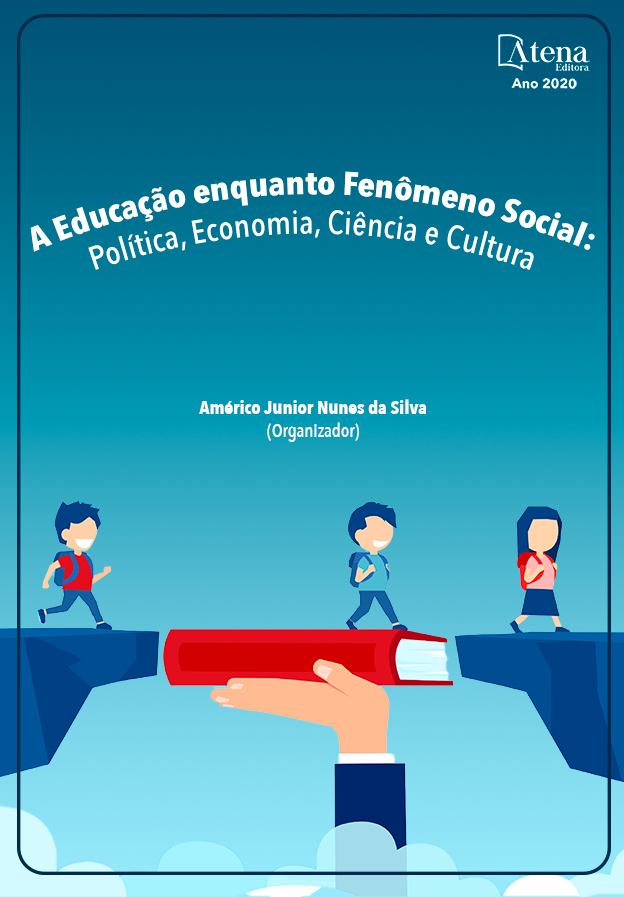
O RECURSO LINGUÍSTICO DAS GÍRIAS UTILIZADO PELOS ADOLESCENTES E/OU JOVENS QUE CUMPREM MEDIDA SOCIOEDUCATIVA DE INTERNAÇÃO.
Este artigo apresenta uma das variedades presentes no léxico português, que é a gíria, falada em especial por adolescentes e/ou jovens que se encontram em privação de liberdade. Essas gírias são consideradas herméticas, logo difíceis de serem compreendidas por aqueles que não estão inseridos no grupo, sendo, por isso, uma forma de proteção e identificação dos membros. A gíria dentro do ambiente socioeducativo, tem uma criação própria, em geral criptológica, sendo assim, esta variedade linguística utiliza-se do significante e modifica o significado, tomando a gíria um signo de grupo. Para esses usuários há uma necessidade de criar um signo linguístico próprio, não porque desconheçam outros níveis linguísticos, mas porque eles têm como objetivo a busca da proximidade com quem ele fala e a criação de efeitos de sentidos que outras palavras não oportunizariam criar. A partir desse recurso linguístico, os adolescentes constroem laços sociais e lidam com o mal-estar contemporâneo, conseguindo, de alguma maneira, encontrar um lugar no meio social, endereçando seu sofrimento pela via do simbólico. A gíria determina a identidade cultural dos falantes, moldam aspectos de sua personalidade que vão além dos aspectos linguísticos, pois ao falar uma gíria, o sujeito do discurso deixa evidente sua formação ideológica, sua história, sua cultura e inseridos nela os hábitos, costumes, crenças, valores, juízo de valor, bem como sua visão de mundo. Apresentando esse universo linguístico que circunda o uso da linguagem gíria, espera-se uma melhor contribuição para a valorização dessa variedade linguística que, apesar de constituir-se um fenômeno imprescindível no processo natural de renovação da língua, ainda é, por muitos, estigmatizada.
O RECURSO LINGUÍSTICO DAS GÍRIAS UTILIZADO PELOS ADOLESCENTES E/OU JOVENS QUE CUMPREM MEDIDA SOCIOEDUCATIVA DE INTERNAÇÃO.
-
DOI: 10.22533/at.ed.31020091113
-
Palavras-chave: Gíria. Recurso linguístico. Adolescentes. Privados de liberdade.
-
Keywords: Gíria. Recurso linguístico. Adolescentes. Privados de liberdade.
-
Abstract:
This article presents one of the varieties present in the Portuguese lexicon, which is slang, spoken especially by teenagers and / or young people who are deprived of their freedom. These slang terms are considered hermetic, therefore difficult to be understood by those who are not part of the group, and, therefore, a form of protection and identification of members. Slang within the socio-educational environment, has its own creation, usually cryptological, so this linguistic variety uses the signifier and modifies the meaning, making the slang a group sign. For these users, there is a need to create their own linguistic sign, not because they are unaware of other linguistic levels, but because they aim to seek proximity to the speaker and create meaning effects that other words would not create. From this linguistic resource, adolescents build social bonds and deal with contemporary malaise, managing, somehow, to find a place in the social environment, addressing their suffering through the symbolic. Slang determines the cultural identity of speakers, shapes aspects of their personality that go beyond linguistic aspects, because when speaking slang, the subject of the speech makes evident their ideological formation, their history, their culture and habits, customs, beliefs, values, value judgment, as well as your worldview. Presenting this linguistic universe that surrounds the use of slang language, it is expected a better contribution to the valorization of this linguistic variety, which, despite being an essential phenomenon in the natural process of language renewal, is still, by many, stigmatized.
-
Número de páginas: 15
- FERNANDO MIRANDA ARRAZ


